_____
In the UK, protecting your skin from the sun is crucial, even on cloudy days, as sunburn increases the risk of skin cancer.
When you’re expecting, many things change. Choosing a new skincare routine may be one of them. Prioritizing sun protection that safeguards both you and your baby without any worries about harmful chemicals is essential.
With countless options available, especially in the sunscreen category, it can feel daunting to identify which formulas are safe for use during pregnancy. Stay safe by choosing a pregnancy safe sunscreen crafted from scientifically proven and natural ingredients, ensuring nourishment and protection for your skin while keeping your baby safe.
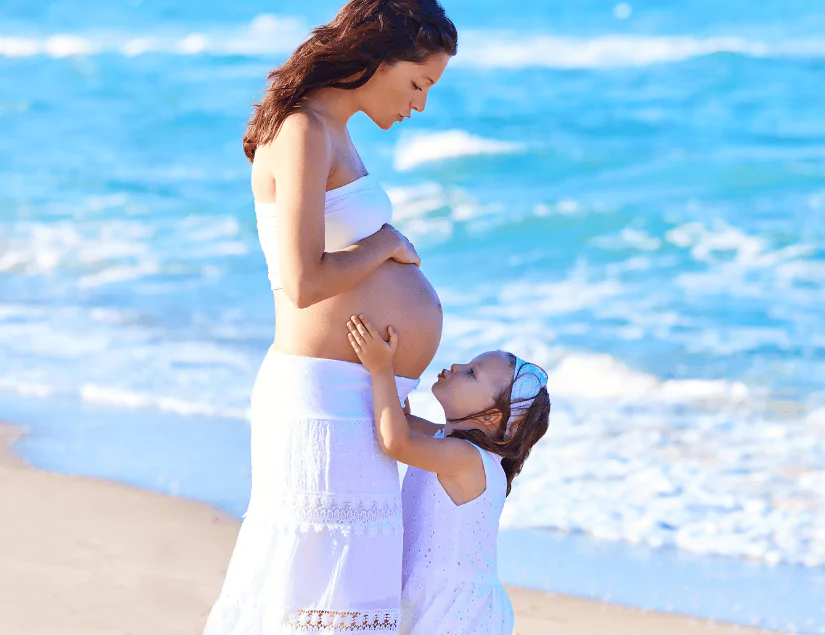
It’s a common misconception that tanning is safe; in reality, there’s no healthy way to achieve a tan, highlighting the importance of sunscreen for everyone, including pregnant mothers. For those expecting, finding pregnancy safe sunscreen in the UK that shields from harmful rays, is highly photostable, and without the inclusion of damaging chemicals becomes very important.
Understanding the balance between sun protection and vitamin D intake, especially with the advised shelter between 11 am and 3 pm from March to October, calls for a sunscreen that is not only effective but also safe for both the mother and the developing baby. The emphasis on using at least SPF 30 sunscreen aligns with the need for high-level protection during this sensitive period.
This article explores pregnancy safe sunscreen options available in the UK, focusing on products that exclude conventional sunscreen chemicals such as zinc oxide and titanium dioxide. It aims to identify key ingredients to steer clear of during pregnancy, featuring insights from experts and dermatologists who recommend sunscreens offering optimal sun protection, ranging from SPF 25 to SPF 50, while maintaining safety and sensitivity for the skin. Moreover, it provides practical advice on applying sunscreen during pregnancy to enable expectant mothers to enjoy the sun responsibly and with confidence.
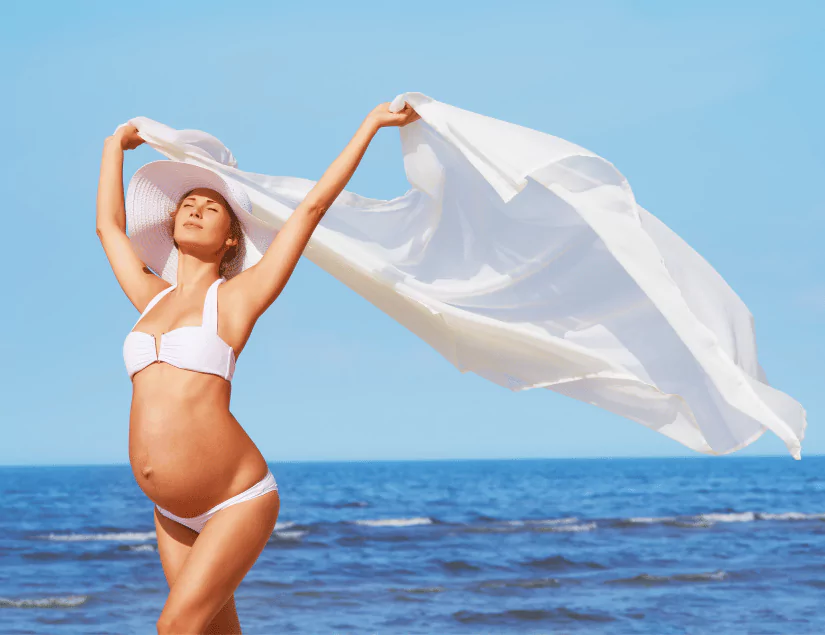
Understanding what makes a sunscreen pregnancy safe is important for expectant mothers in the UK, who are seeking to protect their skin and their unborn baby from the sun’s harmful rays. Pregnancy safe sunscreens are formulated to be as gentle and non-irritating as possible, without compromising on sun protection efficacy. Here’s a closer look at the considerations for choosing these sunscreens:
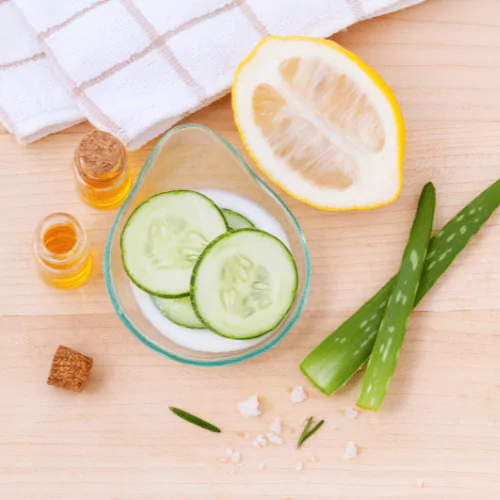
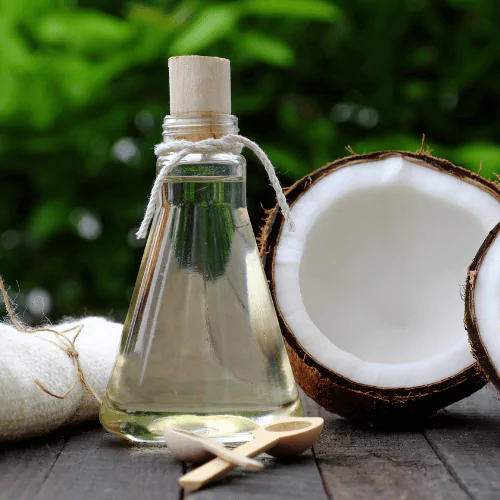
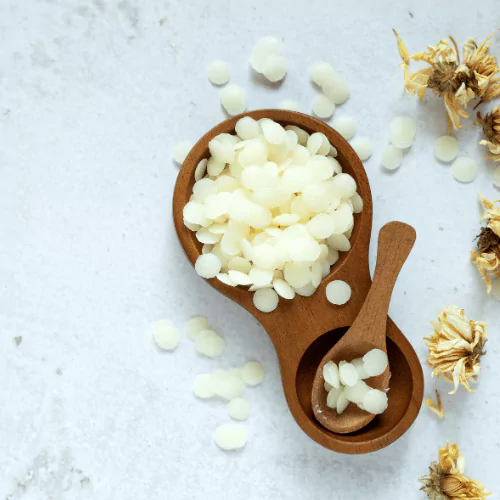
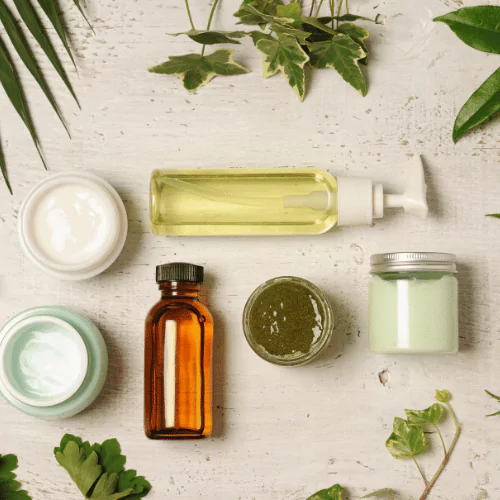
Traditional sunscreens might contain chemicals like oxybenzone, avobenzone, and octinoxate, which are best avoided during pregnancy due to concerns about potential skin irritation and other health risks. The emphasis on avoiding zinc oxide in our formulations ensures that expectant mothers have access to sunscreens that are both effective and aligned with their safety concerns.
Look for sunscreens that are labeled as suitable for pregnancy, or for mother and child. Certifications such as “proven reef safe” and endorsements from dermatological associations can also indicate a product’s safety and efficacy. Transparency in labeling, indicating the absence of harmful chemicals, is key to making an informed choice.
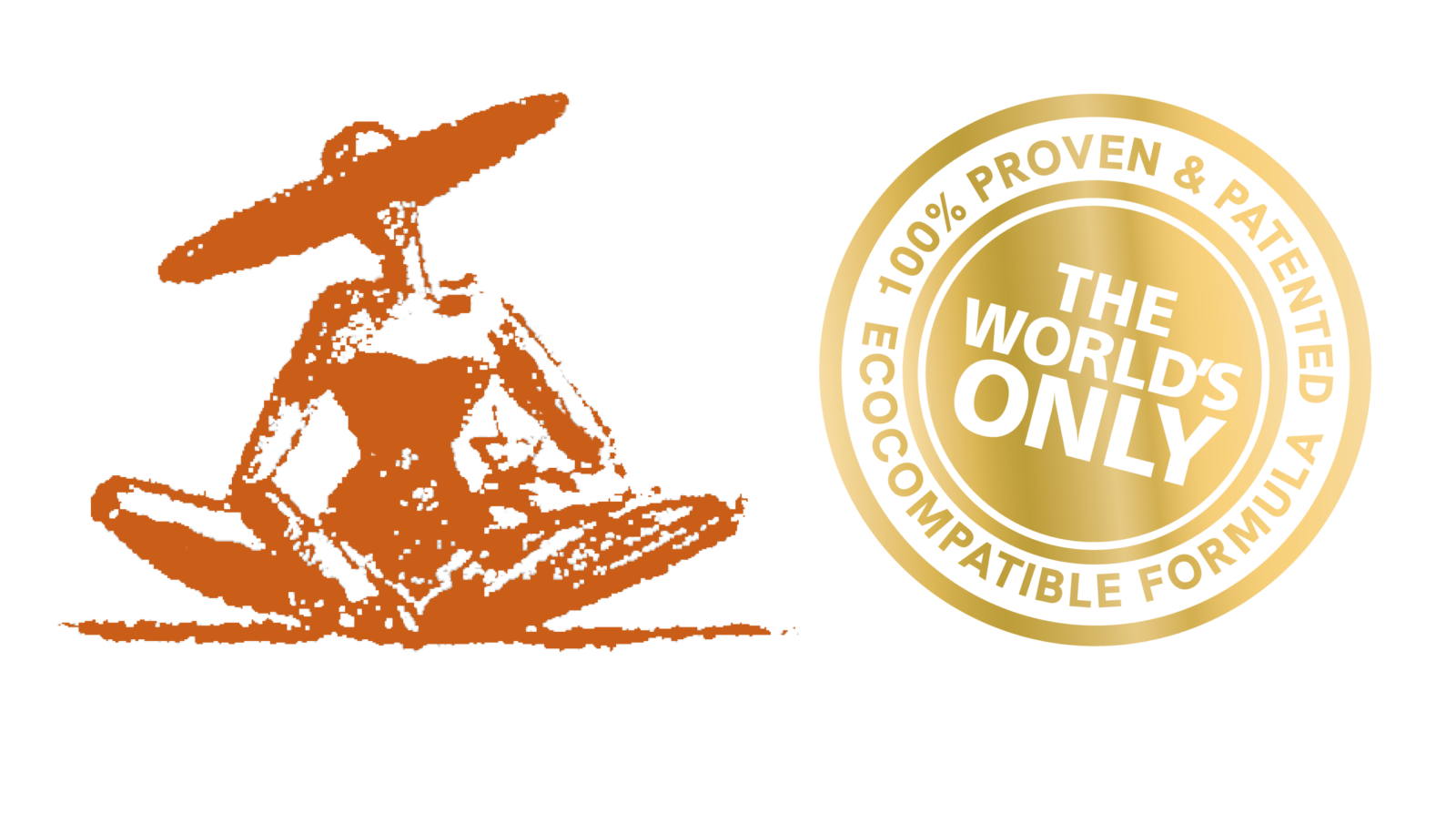
Choosing pregnancy safe sunscreen in the UK involves more than just selecting a product with high SPF. It’s about understanding the balance between effective sun protection and ensuring the safety of both mother and baby. By prioritizing products with proven and natural ingredients, and steering clear of certain chemical filters, expectant mothers can enjoy the sun with peace of mind, knowing they are using a product that is safe, gentle, and effective.
_____
Sun exposure and pregnancy: potential benefits and need for caution
A review study by Botyar and Khoramroudi (2017) explored the link between sun exposure and pregnancy outcomes. Their research suggests that moderate UV exposure during the first trimester might be associated with improved fetal growth and even lower blood pressure in pregnant women.

However, it’s important to note several key points:
Therefore, while this study offers some interesting insights, it doesn’t negate the importance of using sunscreen during pregnancy.
To fully grasp the importance of choosing the right pregnancy safe sunscreen in the UK, it’s vital to understand the distinct characteristics and effects of UVA and UVA rays on the skin:

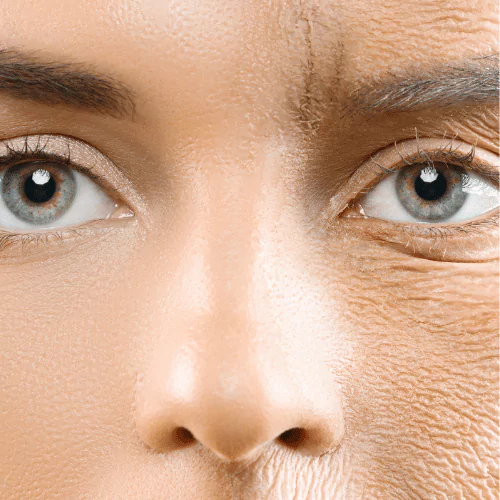
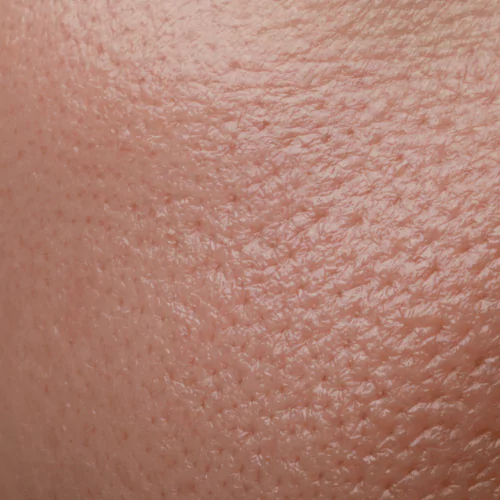
Effects:
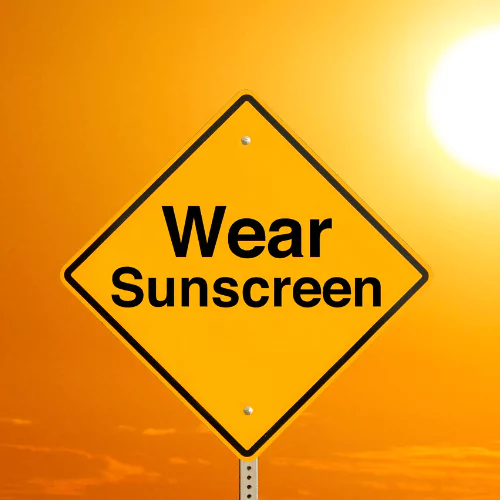
Both types of rays have their uses in medical treatments, such as light therapy for conditions like psoriasis and eczema, highlighting their dual nature of being both beneficial and harmful. This duality underscores the critical need for broad-spectrum sunscreens that offer protection against both UVA and UVB rays.
When selecting a pregnancy safe sunscreen, it’s essential to look for products that not only meet the SPF requirements for UVB protection but also offer substantial UVA protection. Sunscreens labeled with at least an SPF 30 for UVB and a 4-star UVA protection or the “UVA” circle indicating compliance with EU standards, ensure a broad spectrum of protection. Additionally, the preference for proven reef safe sunscreens over chemical sunscreens, or those containing potentially harmful ingredients like zinc oxide, aligns with the emphasis on safety and efficacy.
Vitamin D is like sunshine for your body, and it’s been around for over 500 million years! Did you know that Vitamin D is also a hormone? This means it helps control how your cells and organs function. Vitamin D is essential for life. When you’re pregnant, it becomes even more important. Here’s why:
Sun Safety for Mamas: Sun exposure is great for vitamin D production, but being pregnant means being extra careful with the sun. Here’s the key: While you want some sunshine, too much sun can be harmful. That’s why using the best proven safe sunscreen with broad spectrum, SPF 30 or higher, with high photostability for pregnant women is important for preventing sunburn and sun damage.
_____
Promising research by Tommy’s, a charity supporting pregnancy research, explores the potential positive effects of sunlight exposure during pregnancy. Their study suggests that sunshine might:
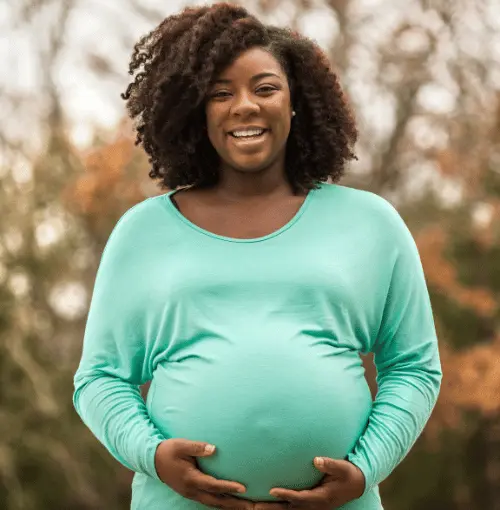
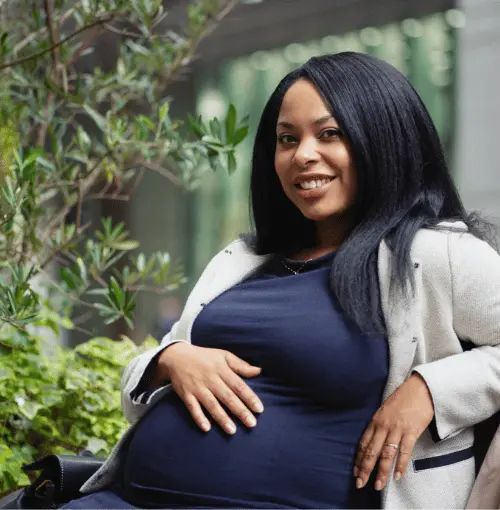
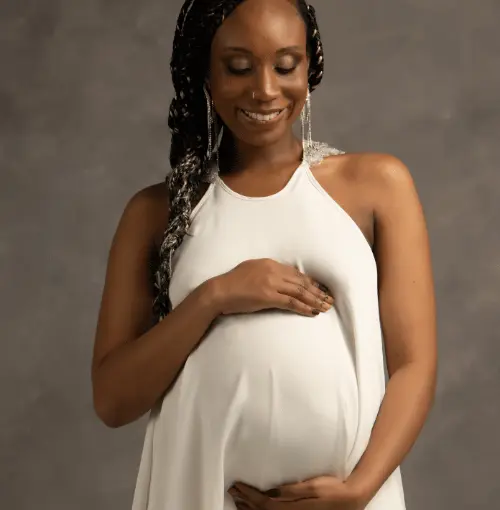
Important Considerations
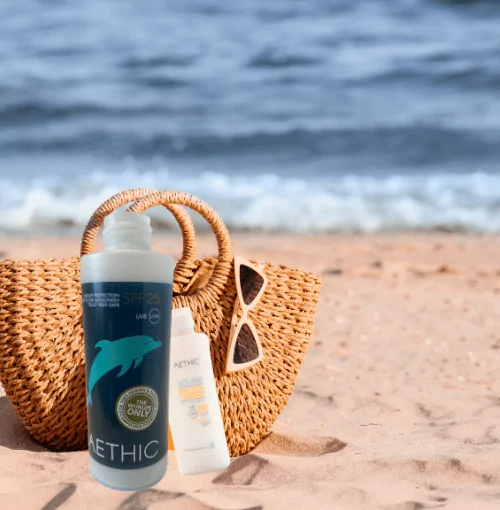
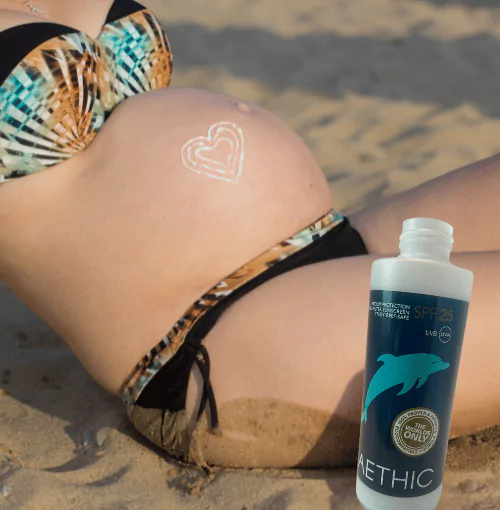
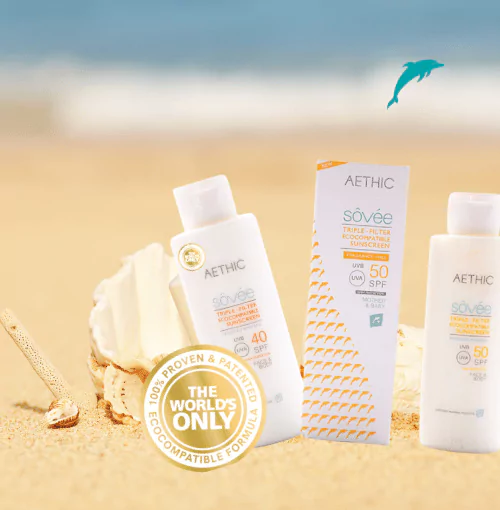
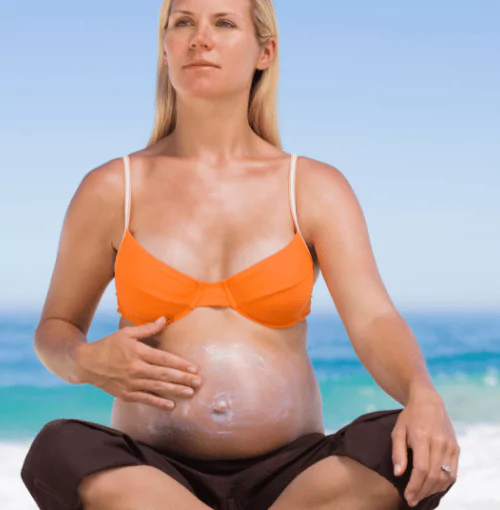
When considering pregnancy safe sunscreen in the UK, it’s paramount to be vigilant about the ingredients list. Expectant mothers should be aware of certain substances that could potentially harm them or their developing baby. Our formulations are meticulously designed, excluding harmful chemicals often found in traditional sunscreens. Here’s a closer look at the top ingredients to avoid in sunscreens during pregnancy:
We prioritize safety for moms and babies. That’s why our sunscreens are formulated with ingredients widely recognized as safe for pregnancy. Our products do not contain zinc oxide, due to its contentious nature regarding safety in pregnancy. it is also free from Titanium Dioxide. This ensures our proven and patented sunscreens are not only effective but also align with our ethos of safety, purity, and sustainability.
____
In the journey to finding the ideal pregnancy safe sunscreen, we encourage expectant mothers to thoroughly examine product labels and opt for options that prioritize Proven or patented products, containing natural and organic components. Aethic sunscreens prioritize your well-being with triple sun filters, photostability up to 83% , broad-spectrum SPF protection. These gentle formulas are free from harsh chemicals and provide the confidence you need to enjoy the sunshine while safeguarding yourself and your growing baby.


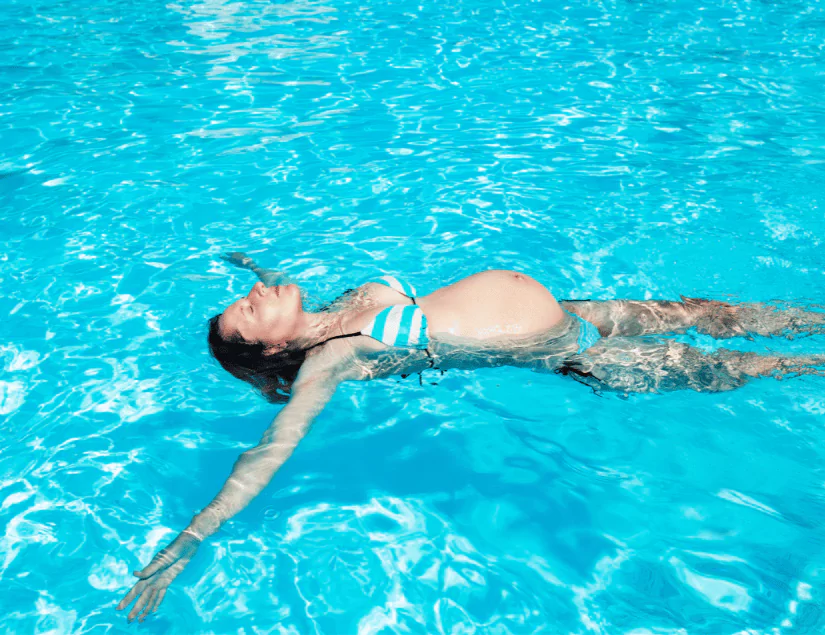
By following these tips, you can enjoy the outdoors safely and protect yourself and your baby from the harmful effects of the sun.
The N.HS. underscores the significance of daily sunscreen use for pregnant women to shield against skin cancer, emphasizing the necessity of sun protection regardless of weather conditions or sun visibility. Frequent reapplication is advised during outdoor activities to maintain optimal protection.
Ensuring the sunscreen is current and not expired is crucial for maintaining its effectiveness and safety.
The commitment to using no harmful chemicals at all, such as those that can be found in traditional sunscreens, reflects a dedication to safety and efficacy. A conscious selection of ingredients, embodies a commitment to purity, safety, and environmental responsibility.
Looking for a pregnancy safe sunscreen that pampers your skin? We offer a range of gentle formulas that keep you and your unborn baby protected.
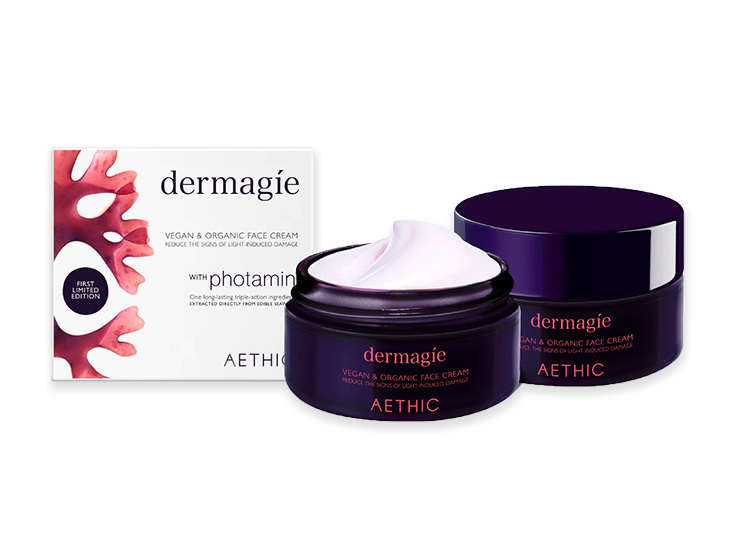
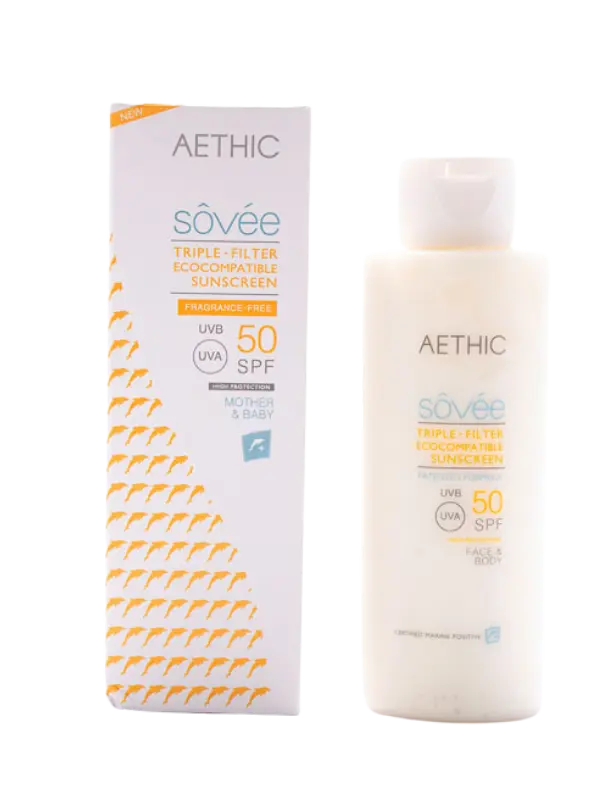
Ever feel like pregnancy throws your skincare routine into chaos? Hormonal fluctuations can lead to everything from breakouts to dryness, leaving the “pregnancy glow” feeling like a distant dream. Plus, with certain ingredients off-limits, finding safe and effective products can feel overwhelming.
Sunscreen is crucial during pregnancy, as your skin might be more sensitive to the sun. We understand the importance of using safe products, which is why our pregnancy safe sunscreens are formulated without any chemicals at all!
Extra Care for Sensitive Skin:
If you have fair or sensitive skin, freckles, red or fair hair, many moles, or a family history of skin cancer, it’s wise to take extra precautions. We recommend sunscreens with SPF 30 or higher and regularly checking your skin for any changes. General advice from dermatologists is to avoid products containing retinoids or salicylic acids.
Misinformation can be overwhelming during such a special time. Here is some expert advice about sunscreen and commonly questioned ingredients:
Applying pregnancy safe sunscreen effectively is not just about protection from the sun’s rays but also ensuring the safety of both the expectant mother and the developing baby. Here’s a step-by-step guide to ensure maximum efficacy and safety:

We hope we have addressed some of your questions that may arise when you’re expecting and seeking pregnancy safe sunscreen options to protect your unborn baby and your skin. Aethic is committed to developing products that are entirely safe for the environment, and therefore for you and your skin. When you choose Aethic, you’re not only protecting yourself but also the oceans. Thank you! Take a leap for the ocean !
.